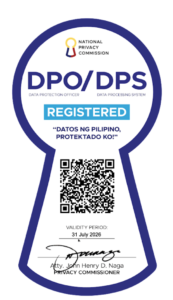How to Build a Skill-Based Team for Your Business

Businesses in the 21st century are operating in an extremely competitive landscape, where quickly responding to change is a prerequisite for survival. In this new age, businesses have started moving away from job-based models towards a new operating model—skill-based organizations.
Skill-based organizations prioritize human capabilities and arrange teams according to skill, rather than roles. This approach gives businesses more agility, as they can quickly pivot to reallocate talent where necessary when responding to change in real time.
It’s more dynamic, and it’s the way forward. In fact, a recent Deloitte survey shows that 89% of executives say that their organizations will be moving toward a skill-based approach. Plus, those that have already adopted this approach are achieving better business results than those who have maintained a job-based approach to team building.
Having a skill-based team consisting of individuals with diverse expertise and backgrounds is crucial for achieving success and maintaining a competitive edge. Such a team ensures that your business is well-equipped to deal with and keep up with the pace of change, without too many disruptions to your day-to-day.
Want to make the change too? Here’s how you can build a skill-based team and the benefits that it will have for your business.
Identify the Skills Needed For Your Team
Before assembling a team, you must understand which essential skills and expertise you need to achieve your goals. Start by considering the goals, vision, and mission of your business. Then think of key areas of expertise that can help you to achieve these goals.
Assessing your current workforce is another way of identifying which skills are lacking. Analyze their strengths, weaknesses, and skill gaps.
Try not to identify skills in terms of job titles, but rather in terms of capabilities. Don’t just think about what skills you’re lacking now, but also analyze the skills your business needs to change over time to meet your long-term goals and objectives. Pay attention to how industry trends and market conditions may impact the skill that you require.
Once you have identified which skills you need on your team, you should list them in order of importance. Consider both hard skills, like technical and industry-specific knowledge, as well as soft skills, like communication and problem-solving.
Focusing on skills rather than job titles and hierarchical positions will allow you to assemble a team that is both agile and adaptable to change.
Focus on Experiential Learning
Building a skill-based team is not a onetime task, it’s an ongoing process. Foster a work environment where your employees have the opportunity to constantly upskill themselves.
You must regularly assess your team’s skills and identify weak areas that need improvement. It’s up to you to then provide the resources for your employees to close any skill gaps. You can do this through mentorship and training programs, workshops, conferences, masterclasses, and online courses
Redefine Performance Management
Include skills development in your performance management. In this process, evaluate how your employees have applied their skills to create value.
This can be difficult to do since performance management approaches usually evaluate worker outcomes concerning goals rather than skills.
To redefine performance management, employees should work with their managers to identify their goals in terms of their own development. They should then identify learning opportunities based on these goals that they can act on for evaluation.
Use Talent Marketplaces
Taking a dynamic skill-based approach to team building requires that you deconstruct work into smaller pieces, such as gigs and tasks.
Talent marketplaces are a great mechanism for getting these smaller segments running smoothly. The technology behind talent marketplaces matches employees to projects and opportunities based on their skills, interests, and preferences. This means that you’ll be able to pinpoint and recruit employees who have the exact skills that you’re looking for.
You can also create your own talent marketplace within your company. You can do this by identifying and matching the current skills of your team to roles, projects, mentoring opportunities, and tasks.
Reward Skills Development
Recognizing and rewarding the efforts made by your team motivates them to continually develop their skills. You can reward their skills and contributions to the company’s success through:
- Promotions and salary increases based on skill development and performance.
- Praising team members who demonstrate exceptional growth and the taking up of new skills.
- Providing bonuses and other incentives for completing training programs and earning certifications.
Rewarding your employee’s skills development will result in greater employee engagement, which makes for a better team overall.
Tap into Diverse Talent
Use various recruitment channels to ensure that your team is as multi-skilled as possible and that you reach the correct people.
You can use channels like job boards, social media, recruitment agencies, head-hunters, and networking events to maximize your reach. You could also leverage your team’s own networks through employee referral programs. This can uncover hidden talent that you may otherwise not have been able to reach.
Use Technology
Technological developments have made every facet of running a business easier, from automating processes and time tracking to improving workplace efficiency. It’s also made assembling a skill-based team much easier than ever before.
Skills assessments and inferences are much more accurate when using Artificial Intelligence (AI) programs. It’s also more effective than relying on workers to self-report their skills and proficiency levels.
In the aforementioned Deloitte survey, 63% of HR executives reported that they used AI to identify skills that they needed for a team. 57% said that they used AI to document the full range of every employee’s skills and capabilities. And 45% of HR executives used AI for skills analytics. However, you do still need to monitor the AI for any potential biases.
Final Thoughts
A skill-based team is crucial for the success of organizations operating in today’s fast-paced business environment.
Carefully analyzing the skills that each role requires, rather than the job title, will help you to identify the best individuals for the task. It will also help you to create a team that is not only capable of achieving your business goals but also capable of adapting to rapidly changing circumstances.
A culture of continuous, experiential learning ensures that your team can keep up with the latest trends while remaining engaged and motivated.
Discover more about outsourcing and
how you can maximize it for your
business success!
Get a copy of our E-book: Guide to Outsourcing.




